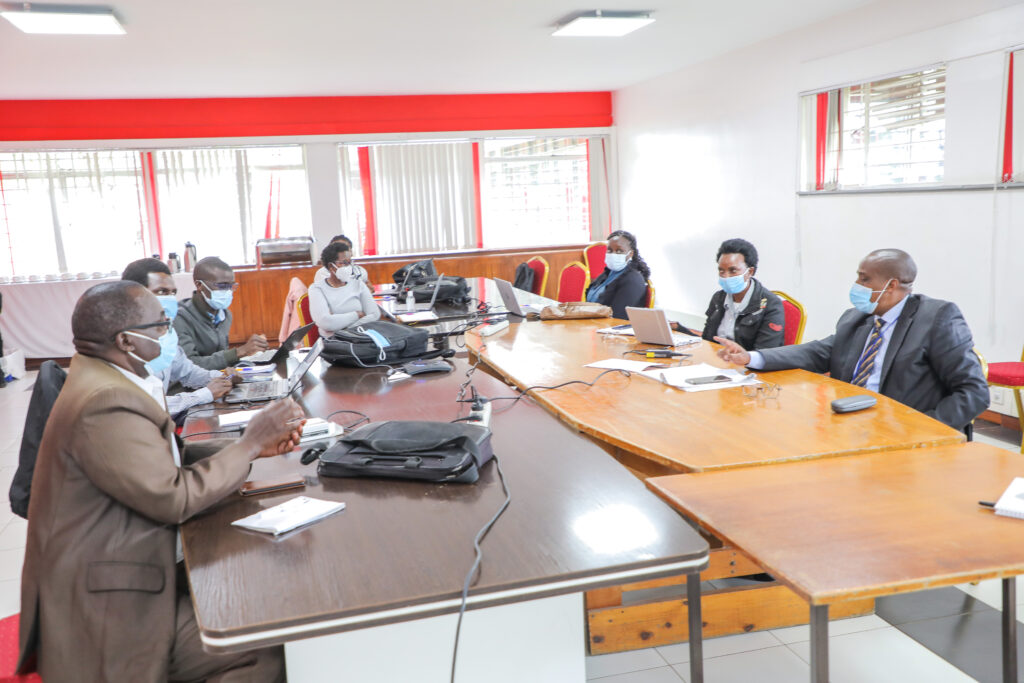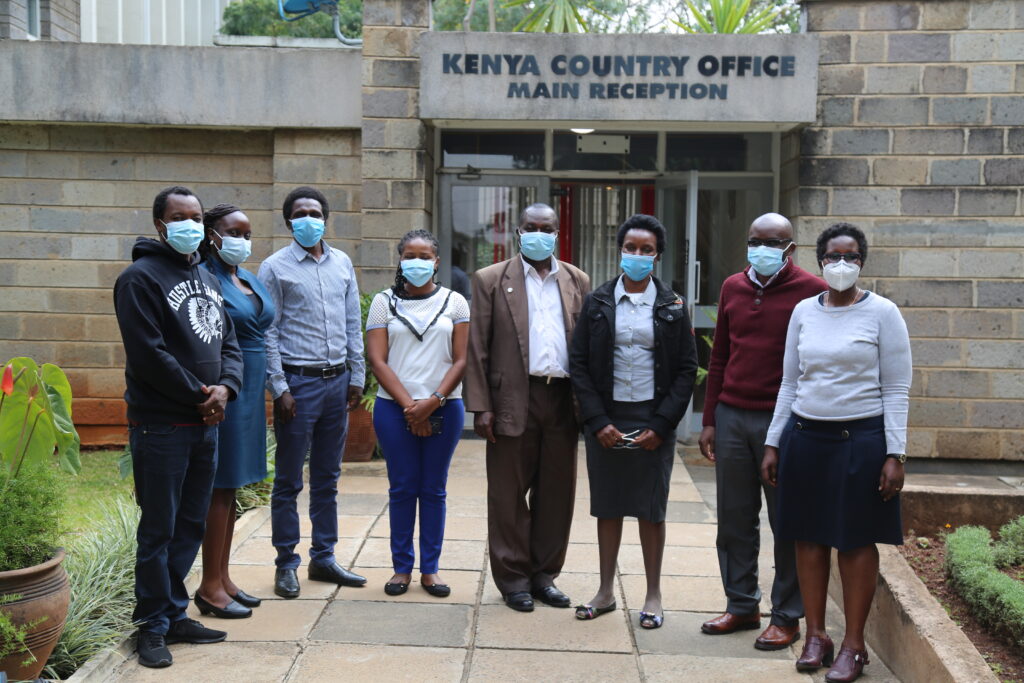COVID-19 patients, including asymptomatic ones, present potential transmission chains to other patients and health care workers making health facilities potential settings for the transmission and infection. Hospitals and other health care facilities are at risk of being transmission hot points if IPC measures are not adhered to by health care workers and patients. Large numbers of people participating in the provision of patient care face a high risk of transmitting or acquiring infections to and from patients, including their communities and immediate family members.

To contribute to addressing this situation, Amref Health Africa in Kenya’s Hygiene and Behaviour Change Coalition (HBCC) project, with a team from the Ministry of Health, organized a three-day workshop to harmonize the existing COVID-19 infection prevention and control (IPC) and behaviour change communication (BCC) training content. The workshop was convened by Amref HBCC project team chaired by the Ministry of Health’s Department of Environmental Health Water Safety, Sanitation and Hygiene (WASH) Division. The training will be rolled out targeting 4,000 health care workers, in ten counties, namely Nairobi, Embu, Meru, Kisii, Siaya, Migori, Homabay, Kakamega, Mombasa and Kwale. The training will impart knowledge and skills to health care workers to reduce the facility-based transmission of COVID-19.

About the Hygiene and Behaviour Change Coalition (HBCC) Project
The HBCC project supported by Unilever and UKAid seeks to reduce the exposure to COVID-19 at health care facilities and in communities using a three-pronged approach through mass communication, behaviour change programs and digital solutions to reach out to at least five million Kenyans with culturally relevant, timely and simple messages on how to curb the spread of COVID-19. The project will reach priority and influencing audiences (people) vulnerable to COVID-19 including mainstreaming marginalized communities, women, youth and people who are able differently with critical Social Behaviour Change (SBC) information to improve, reinforce, and sustain related hygiene practices, as well as support communities to access improved hygiene services in 10 counties namely; Migori, Kisii, Nyamira, Homabay, Kakamega, Meru, Embu, Mombasa, Kwale and Nairobi
